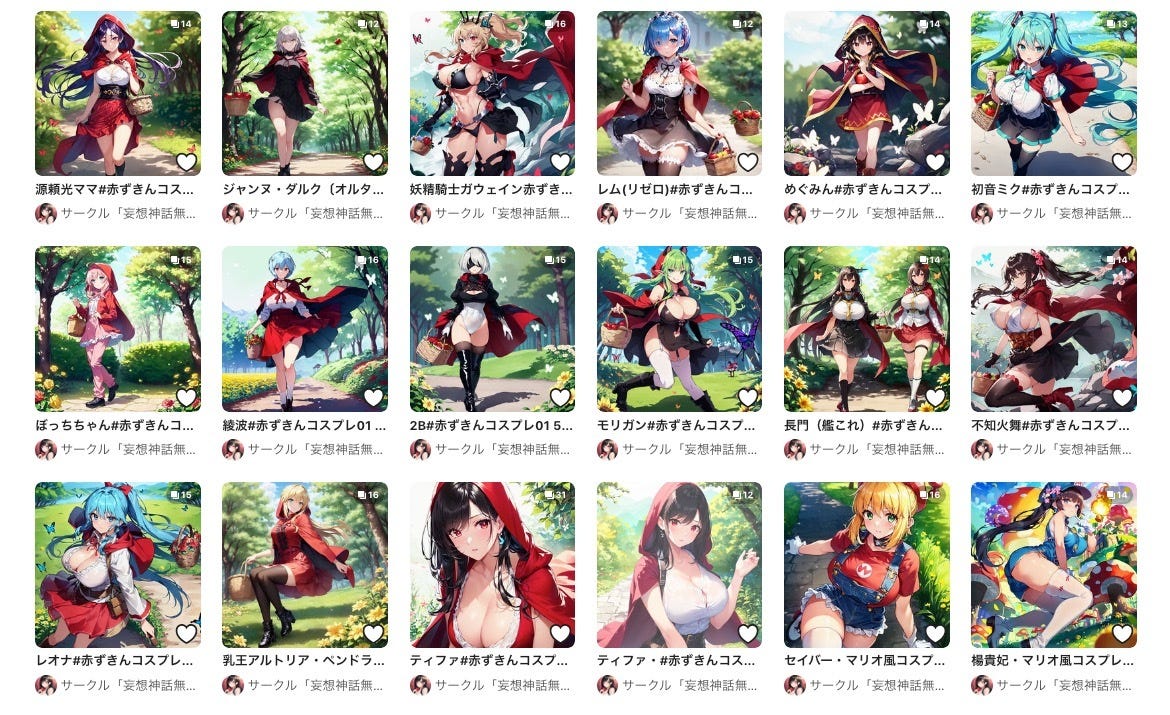Shonen Jump enlists ChatGPT technology to help artists create manga
Plus: Artists' concerns force platforms to restrict AI-generated content; 'Black ships' competing for anime content; Anime licensing growth at TV Tokyo; and more
This is your weekly Animenomics briefing, covering the business of anime and manga. Today is Wednesday, May 17, 2023.
Shonen Jump promotes AI copilot for manga creators
Editors of Shueisha’s Shonen Jump+ online manga platform have launched Comic Copilot, an AI service utilizing the same technology as the ChatGPT chatbot, to support manga artists in generating story ideas for new titles.
Why it matters: As reported by Animenomics last month, Shonen Jump+ editor-in-chief Shuhei Hosono has been vocal about AI’s potential to benefit artists.
Shonen Jump is promoting the service on its Jump Rookie platform, which serves a a pipeline for Shonen Jump editors to discover amateur artists.
Behind the scenes: Comic Copilot uses the GPT-4 large language model built by OpenAI that is accessible through an API. The same model is used in a premium version of OpenAI’s ChatGPT product.
Alu, a digital technology company that has created NFT distribution tools, developed the service with Shonen Jump+ manga editors.
How it works: A demonstration by technology blog Gigazine shows how creators can enter prompts in Comic Copilot to plan a manga.
Users can ask the chatbot to generate and refine story ideas by entering a set of keywords for the theme.
The chatbot can build on those ideas to create a story progression plan, come up with character names and background stories, and generate possible titles.
After artists start drawing their manga, Comic Copilot can also help refine dialogue to fit within the available speech bubbles or to match a character’s personality.
Of note: Comic Copilot users are reminded to look out for generated content that may be copies of existing copyrighted content.
Content platforms move to restrict AI-generated media

Japanese content platforms are taking action to prohibit or restrict AI-generated media on their websites. Meanwhile, a new survey of 25,000 freelance artists by the Arts Workers Japan Association shows that 94 percent of respondents are concerned about AI’s potential harm in areas such as copyright infringement.
Driving the news: Pixiv, Japan’s largest community website for amateur and professional anime and manga artists, last week announced countermeasures to limit AI-generated content in search results and block some new uploads.
This move follows the website’s move to update its terms of service after the discovery of accounts using AI to imitate the works of professional artists, as reported by Animenomics this month.
Several platforms followed Pixiv with similar bans or restrictions, which they say protect content creators and slow the surge of monetized AI-generated content, according to Anime News Network.
Necessary context: A report by the Yomiuri Shimbun newspaper explains a 2018 revision of Japan’s copyright law allows the use of copyrighted work for machine learning, but it doesn’t describe a process for gaining such permission.
Artists contend that current law allows AI to be trained with copyrighted material that is obtained illegally. Content platforms’ new restrictions aim to curb such unauthorized scraping of artists’ works.
Makoto Nagatsuka, a copyright law expert at Hitotsubashi University, says the law’s preferential treatment for AI development is “peculiar among the laws of advanced nations”.
Clippings: ‘Black ship’ companies competing for anime

Winners of the 47th Kodansha Manga Awards are Shangri-La Frontier by Katarina and Ryosuke Fuji (for the shonen demographic), My Girlfriend’s Child by Mamoru Aoi (shojo), and Skip and Loafer by Misaka Takamatsu (general). (Press release)
Streaming giants Netflix, Disney+, and Amazon Prime are being labeled by the anime industry as “black ships”, a term used to describe 19th-century American vessels that forced the opening of Japan after hundreds of years of trade isolation. (Agence France-Presse, via The Japan Times)
Toei Animation is reaping the benefits of the collective box office successes of Dragon Ball Super: Super Hero, One Piece Film: Red, and The First Slam Dunk. Video production and sales revenue jumped 79.4 percent over the last fiscal year. The studio’s operating income rose 58.3 percent. (Oricon News)
Bandai Namco’s intellectual property production unit, responsible for managing properties such as Mobile Suit Gundam and Love Live!, reported a 20-percent rise in operating income over last year for the fiscal year ending March 2023. (Gamebiz)
The Kyoto District Court has set September 5 as the first public hearing date in the trial of Shinji Aoba, the alleged arsonist in the 2019 Kyoto Animation studio fire that killed 36 employees and injured 32 others. (NHK News)
South Korean youths embracing more Japanese culture
“The cultural exchange of Korea and Japan seems to have entered a new phase, with their younger generations viewing culture and politics as two separate subjects. Their resistance to each other’s culture, which is largely attributable to the two countries’ political feuds, is vanishing as they begin appreciating cultures together on diverse social media platforms like TikTok.”
— Jo Gyu-heon, professor of Korean–Japanese cultural content at Sangmyung University
Context: The Korea Times reports that young South Koreans are watching more anime and embracing Japanese culture, despite calls to boycott Japanese products after a 2018 Korean Supreme Court ruling ordered Japanese firms to compensate surviving victims of forced labor from Japan’s forced colonial rule of Korea.
Overseas sales drive anime license growth at TV Tokyo
Anime licensing at TV Tokyo Holdings Corporation returned to growth in the 2022 fiscal year ending March 2023, according to the company’s earnings report released on Thursday. Revenue grew 23 percent year-over-year to ¥22.2 billion (US$163 million), the strongest growth since the division was created in 2018.
Why it matters: TV Tokyo holds the master licenses for some of the most popular anime titles, including Naruto, Yu-Gi-Oh!, and Pokémon, which have big audiences overseas.
For the fifth year in a row, Naruto and Boruto earned the most revenue and the highest gross profit out of the company’s anime licenses.
By the numbers: Domestic licensing revenue grew 14.6 percent to ¥4 billion (US$29 million), while overseas licensing revenue jumped 25.1 percent to ¥18.2 billion (US$134 million).
It’s the first time since March 2019 that TV Tokyo has reported an increase in domestic licensing revenue.
Growth is increasingly dependent on overseas licensing, which now accounts for 82 percent of anime license revenue. Four years ago, overseas licensing generated 67 percent of anime license revenue.
Licensing demand for Bleach: Thousand-Year Blood War in China, Europe, and the United States and for Spy × Family in Japan and around the world added to the growth.
Thanks for reading this week’s issue of Animenomics. If you enjoy reading our content, consider sharing it with your friends who watch anime or read manga.








